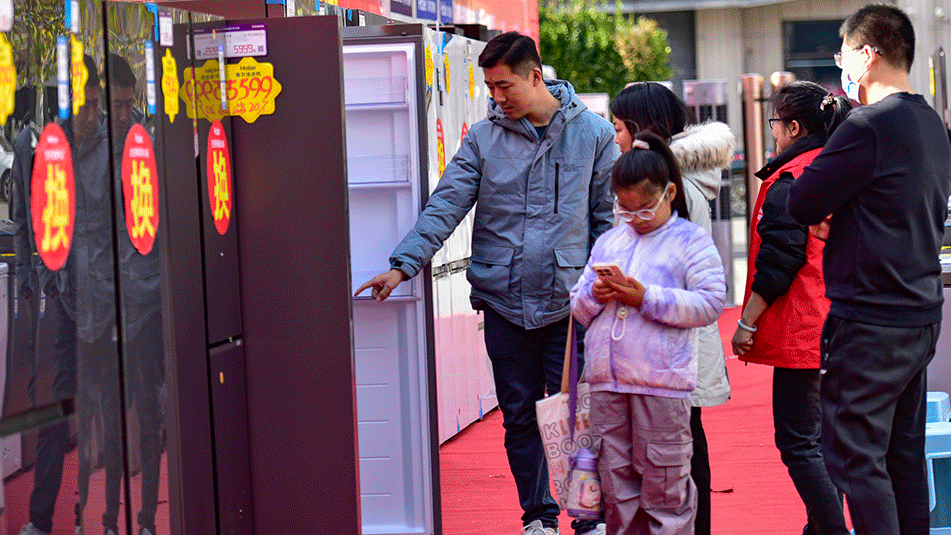
China Launches Policy Blitz to Tackle Unemployment
China’s central government has taken the rare step of issuing a flurry of sweeping measures to bolster the job market, as concerns rise over the country’s rising youth unemployment rate.
The 24-point plan to “promote high-quality and full employment” was jointly issued by the State Council and the Central Committee of the Communist Party of China on Wednesday.
It is the first policy package specifically aimed at creating jobs passed by the central government since 2012, according to the state-run Xinhua News Agency.
The policies will make creating “high-quality jobs” a top priority for officials across China. Universities will be pushed to scrap programs with “low employment quality.” Local authorities will assess new project bids based on their job creation potential. Companies will be required to invest more in staff training.
China’s youth unemployment rate has been on the rise for several years, reaching 18.8% in August — the highest level since the government began excluding students from the figures last year.
Young people’s struggles to find work have become a hot topic on Chinese social media, with stories of graduates going to ever greater lengths to find work frequently going viral.
This month, reports that a master’s student had taken a job as a high school janitor in the eastern city of Suzhou attracted huge attention. Many netizens commented that the story reflected a growing trend of young people lowering their expectations.
China’s leaders have been placing ever greater emphasis on creating attractive jobs for out-of-work graduates. In October 2022, the National Congress of the CPC set the goal of achieving “high-quality and full employment” for the first time, and President Xi Jinping has frequently used the term in recent months.
In its new policy document, the central government has included several measures designed to push the higher education system to align itself more closely with the government’s job creation agenda.
Universities will be expected to expand enrollment in science, engineering, agriculture, and medical programs — fields that the government deems useful to its goal of promoting “new quality productive forces” that will drive innovation, economic growth, and high-quality employment opportunities.
Meanwhile, degree programs that are deemed to have “low employment quality” will be eliminated, with the government planning to use a “red-yellow card” system to sanction universities that perform poorly in this area.
The Ministry of Education first introduced a card system to assess the employment outcomes of university programs in 2010, but the system is now being tightened and expanded due to the growing challenges in the job market.
It’s unclear exactly how the card system will work in practice. But Chinese provinces including Fujian and Sichuan have already specified that university programs with a graduate employment rate below 50% for two consecutive years will receive a “yellow card” — effectively a warning. If the rate stays below the threshold for a third year, the program will receive a “red card,” which means the program could be suspended.
Chinese universities have already started eliminating large numbers of programs to comply with government directives to focus on courses that “contribute to economic and social development.” As of August, 19 institutions had suspended or discontinued a total of 99 degree programs.
However, experts cautioned that ensuring graduates receive training in fields that are useful to employers will not be enough to reduce the unemployment figures. Another problem is that employers often simply don’t want to hire fresh graduates, instead preferring to hire workers that already have several years of experience.
In the future, the government could issue further policies designed to create more entry-level positions in targeted fields for new graduates, said Mao Yufei, an associate researcher at the China Institute for Employment Research.
For now, the government has announced plans to help students gain more professional training, with universities required to integrate more careers education into their programs and high schools asked to provide students with vocational training.
Businesses, meanwhile, will be pushed to prioritize “lifelong” vocational training to ensure their workers continually renew their skills. Companies will be required to spend at least 60% of their training budgets on skills training for frontline workers, according to the policy document. Employers will also be encouraged to set up their own vocational schools.
In another major move, government officials will be told to prioritize projects that “demonstrate strong job creation potential” when assessing bids for land development schemes.
College graduates who have not found a job within two years of graduation will be eligible for subsidies to help them pay for social insurance, according to the policy document, continuing a policy first introduced by the Ministry of Human Resources and Social Security in 2019.
For Mao, there is room for improvement in the way that the government monitors the state of the job market. In 2021, the government announced plans to upgrade its monitoring of the employment market using big data techniques, but there was no mention of this in this week’s plan.
“Employment is both a long-term and short-term issue,” Mao said. “Industrial structure is a long-term factor, while policy adjustments are short-term. Improving employment monitoring is necessary.”
(Header image: Li Muyi/VCG)














